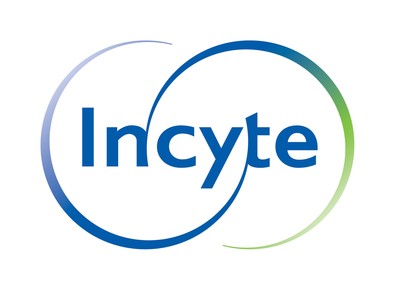FDA Advisory Committee Recommends the Approval of Baricitinib 2mg, but not 4mg, for the Treatment of Moderately-to-Severely Active Rheumatoid Arthritis
"We are confident that baricitinib, if approved, can help people in the U.S. manage the challenges of living with RA," said
Baricitinib 2-mg and 4-mg doses are approved in more than 40 countries, including the member states of the
For both doses, the Advisory Committee voted to support the assessment that baricitinib's data provide substantial evidence of efficacy. For the 2-mg dose, the Advisory Committee voted in favor of the assessment that baricitinib's safety data adequately support its approval. For the 4-mg dose, the Advisory Committee voted against the assessment that baricitinib's safety data was adequate to support its approval based on the proposed indication.
The Advisory Committee's recommendation was based on baricitinib's global development program, which included four completed Phase 3 studies. In total, 3,492 patients, who represented a range of treatment experiences, received baricitinib in the global RA development program. The Phase 3 studies evaluated baricitinib's treatment impact related to RA signs and symptoms, physical function, joint damage progression and other patient-reported outcomes. The Phase 3 program also evaluated recognized risks for RA patients, including serious infection, malignancy, major adverse cardiovascular events (MACE), venous thromboembolism (VTE), and gastrointestinal perforations, along with key laboratory changes. The safety profile of baricitinib is based on 7,860 patient-years of exposure.
"Despite advances in the management of RA over the last 20 years, which include early treatment, optimized use of traditional therapies for rheumatic disease and the advent of newer medications such as biologics, many patients are still struggling to meet treatment targets, and live with debilitating pain, fatigue and other symptoms of RA," said Peter Taylor, MA, PhD, professor,
The
About Baricitinib
Baricitinib is a once-daily oral JAK inhibitor currently in clinical studies for inflammatory and autoimmune diseases. There are four known JAK enzymes: JAK1, JAK2, JAK3 and TYK2. JAK-dependent cytokines have been implicated in the pathogenesis of a number of inflammatory and autoimmune diseases, suggesting that JAK inhibitors may be useful for the treatment of a broad range of inflammatory conditions, including rheumatoid arthritis.
In
About Rheumatoid Arthritis
Rheumatoid arthritis is a systemic autoimmune disease characterized by inflammation and progressive destruction of joints.1,2 More than 23 million people worldwide suffer from RA.3 Approximately three times as many women as men have the disease. Current treatment of RA includes the use of non-steroidal anti-inflammatory drugs, oral conventional synthetic disease-modifying antirheumatic drugs (csDMARDs), such as methotrexate – the current standard of care – and injectable, biological disease-modifying antirheumatic drugs (bDMARDs) that target selected mediators implicated in the pathogenesis of RA.4 Despite current treatment options, many patients do not reach their therapeutic goals or sustained remission.5,6 There remains an important need to provide additional treatments to improve overall patient care.
About Baricitinib Phase 3 Trials
Lilly and
About
Follow @
About Eli Lilly and Company
Lilly is a global healthcare leader that unites caring with discovery to make life better for people around the world. We were founded more than a century ago by a man committed to creating high-quality medicines that meet real needs, and today we remain true to that mission in all our work. Across the globe, Lilly employees work to discover and bring life-changing medicines to those who need them, improve the understanding and management of disease, and give back to communities through philanthropy and volunteerism. To learn more about Lilly, please visit us at www.lilly.com and www.lilly.com/newsroom/social-channels. P-LLY
This press release contains forward-looking statements (as that term is defined in the Private Securities Litigation Reform Act of 1995) about baricitinib as a potential treatment for patients with rheumatoid arthritis and reflects Lilly's and
_________________________
1
2 Hand Clinics, Advances in the Medical Treatment of Rheumatoid Arthritis, http://www.ncbi.nlm.nih.gov/pmc/articles/PMC3135413/pdf/nihms305780.pdf. Accessed
3 WHO Global Burden of Disease Report, (table 7, page 32) 2004, http://www.who.int/healthinfo/global_burden_disease/GBD_report_2004update_full.pdf. Accessed
4
5 Rheumatoid arthritis, Lancet, https://www.ncbi.nlm.nih.gov/pubmed/27156434. Accessed
6 Sustained Rheumatoid Arthritis Remission is Uncommon in Clinical Practice,
Refer to:


![]() View original content with multimedia:http://www.prnewswire.com/news-releases/fda-advisory-committee-recommends-the-approval-of-baricitinib-2mg-but-not-4mg-for-the-treatment-of-moderately-to-severely-active-rheumatoid-arthritis-300634959.html
View original content with multimedia:http://www.prnewswire.com/news-releases/fda-advisory-committee-recommends-the-approval-of-baricitinib-2mg-but-not-4mg-for-the-treatment-of-moderately-to-severely-active-rheumatoid-arthritis-300634959.html
SOURCE
